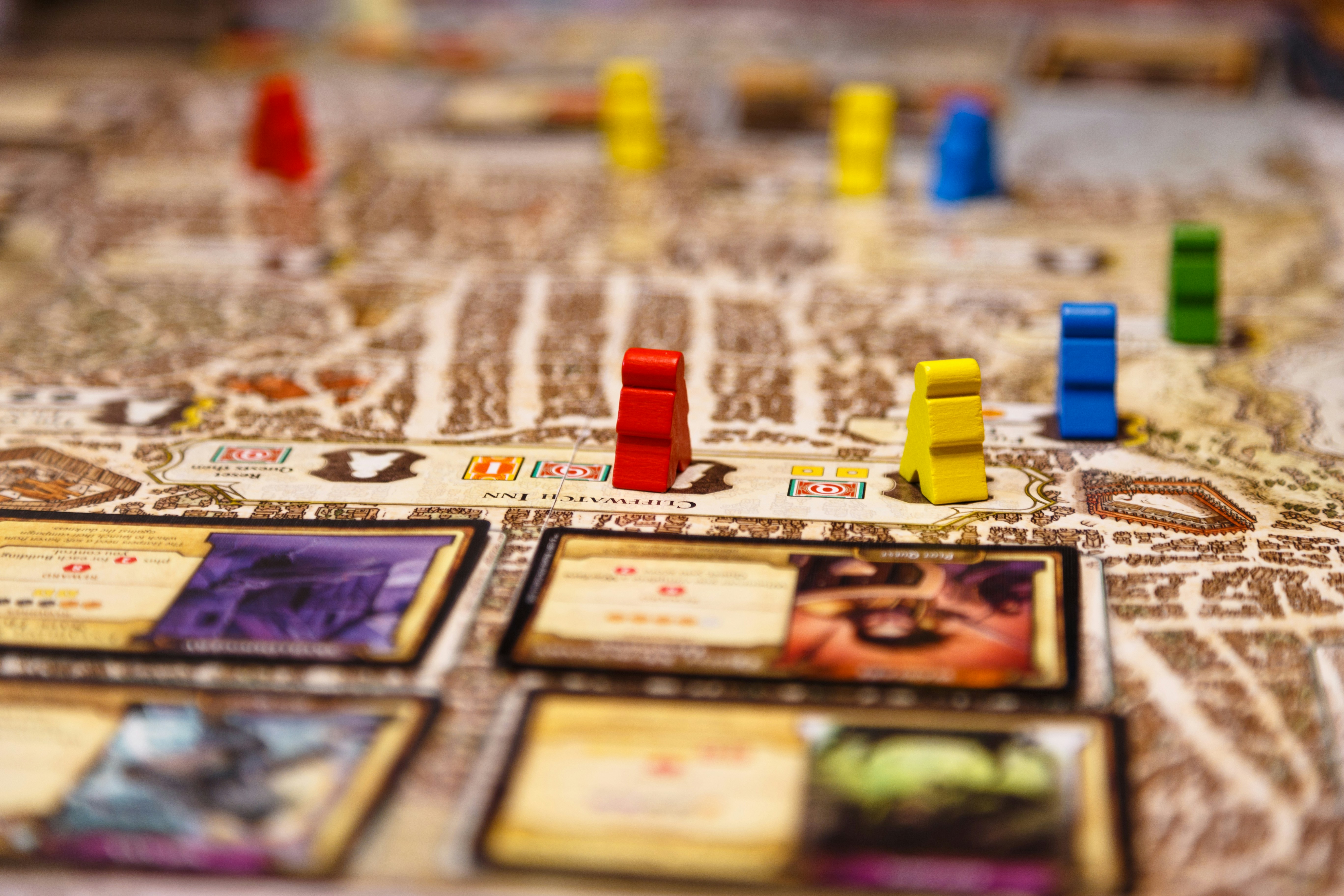Exploring Dynamic Soundtracks: How Adaptive Music Shapes Decisions
In the intricate realm of gaming, where decisions can dictate the very fabric of a player's journey, the soundscape stands as a silent yet powerful ally. This dynamic experience delivers more than mere auditory pleasure; it profoundly influences player decision-making, especially in non-linear narratives. With games evolving into immersive wonders that demand player agency, the integration of adaptive music systems has emerged as a fascinating focal point that we’re eager to explore.
The Surprising Power of Sound in Gaming
Imagine stepping into a lush forest rendered with stunning visuals, where every rustle of leaves, footsteps, and notes in the air seem customized to your actions. Sound design has always played a critical role in enhancing participant engagement, creating atmosphere, and driving narrative momentum. However, the introduction of adaptive music transcends traditional audio techniques, giving rise to a responsive sound experience that adjusts according to player actions and emotional states.
Recent studies have highlighted that audio can trigger emotional responses—ranging from excitement to fear—in players, effectively steering their choices. Furthermore, the unique way soundscapes interweave with gameplay fosters a more compelling narrative immersion. For example, consider horror games that ramp up ambient tension as players approach high-stakes decision points, coaxing a visceral response often reflected in the player's subsequent choices.
Understanding Adaptive Music Systems
At its core, adaptive music is a system that responds to player actions in real-time. This technology varies the composition, instrumentation, and tempo based on gameplay dynamics. As players navigate branching storylines or face moral dilemmas, the accompanying score adapts to reflect the mood. It's like having a personal soundtrack that intensifies your experience based on your unique path through the game.
A fantastic example can be drawn from the game Journey, where the emotional landscape of the music shifts in harmony with the player's exploration. The hauntingly beautiful composition serves not only to elevate the narrative but also to guide the player's emotional reactions, steering them toward a deeper connection with the overall experience.
The Emotional Resonance of Adaptive Soundtracks
The emotional connectivity derived from adaptive music systems is monumental—players aren’t just passive listeners; they're participants in an auditory conversation that both informs and enriches their journey. Recent research cites that players can recall emotional details about a game's narrative better when paired with a relevant musical backdrop.
Engagement is further amplified in role-playing games (RPGs) where players can make significant choices that affect the storyline. In these cases, thoughtfully structured music dynamically underscores pivotal moments, such as the climax of a battle or a critical character reveal. As players face decisions that shape outcomes, they often find themselves influenced by the intensity or calm offered through the score.
Dynamic Cues and Decision-Making
The adaptive nature of these soundtracks serves as more than just decor; it serves as a cue for decision-making. The psychological concept of "cognitive load" comes into play here. When players are faced with significant choices—whether to trust a character or take a risk—the ambient sounds and music provide subconscious hints that may sway their decisions.
Consider a thrilling chase scene: as the tempo accelerates and the orchestration intensifies, players might feel an urgency to react more quickly, compelling them to make snap decisions. This visceral immediacy affects how players engage with her narrative arc, often a precursor to an unexpected plot twist or the unraveling of a character’s storyline. The mechanics behind these adaptive systems exemplify the merge of art with technology, crafting enveloping experiences that resonate deeply with players.
Bridging Emotion and Player Engagement
Adaptive music systems enhance not just gameplay but emotional resonance. When coupled with well-crafted narratives, they provoke empathy and attachment to characters, making choices feel less transactional and more impactful.
In games where player agency shapes narrative pathways, emotional soundtracks cultivate familiarity with the world and its inhabitants. Utilizing an individual’s emotional responses, developers can manipulate music within the game to nurture empathy or evoke nostalgia. The sound can resurrect past memories, triggering reflective thoughts about real-life experiences, thus creating a synergy between player emotion and in-game events.
The influence of soundtracks in shaping player experiences is further explored in publications like Harvard Business Review, which emphasizes how emotional stimulation leads to long-term engagement—a crucial metric in the gaming industry.
Real-Life Applications and Case Studies
The world of gaming extends beyond entertainment—it often intersects with education, therapy, and social engagement. Consider Hellblade: Senua's Sacrifice, which intertwines mental health narratives with dynamic sound design, presenting both a compelling story and an informative experience on psychosis through its music. The sound design isn’t just a backdrop; it’s integral to the gameplay, embodying Senua’s emotional journey.
In the realm of educational games, adaptive music further enhances learning experiences. For instance, consider how math puzzles might feature varying musical motifs to indicate a player's progress. When a player is close to a solution, uplifting music might signify victory, while dissonant notes could hint at potential missteps, subtly guiding educational outcomes.
The Future of Music in Gaming
With advancements in technology, it’s fascinating to think about where adaptive music systems could lead us in gaming. From AI-generated scores that respond fluidly to player moods to complex interactions with virtual reality (VR) narratives, the potential is vast and still largely untapped.
The burgeoning field of neurogaming, where brain-computer interfaces influence gameplay, brings new dimensions to this dialogue. Imagine music that's not only adaptive to your actions but also to your reactions as monitored by device sensors. Such evolution could forge unprecedented connections between emotional states and narrative arcs, challenging developers to craft even more personalized experiences.
We can also learn from emerging narratives where music plays a pivotal role in shaping cultural contexts. For instance, various game jams and communities are experimenting with soundscapes that reflect folklore and social issues, as described in posts like Localized Game Narratives: Folklore and Engagement. This approach emphasizes how music’s emotional pulse is intertwined with storytelling across diverse mediums.
Unearthing Psychological Connections
As gaming continues to mature, understanding the psychological aspects influencing player experience becomes vital for developers aiming to enhance engagement. Understanding how dynamic soundtracks can create layers of psychological engagement encourages professionals to adopt adaptive concepts to improve player retention and satisfaction.
An interesting angle here is exploring environmental storytelling, as discussed in our feature on The Unseen Architects: Environmental Storytelling. Just like background music, the environmental cues crafted into the game can shape how players perceive spaces and narratives. Together, soundscapes and visual storytelling expand the depth of narrative avenues.
Cultivating Trust through Consistent Experiences
Establishing a sense of trust is fundamental in any gaming experience. If players can rely on consistent cues from adaptive music systems that align with the storyline, they will have a more profound, more immersive engagement with the game. This trust forms the bedrock of players’ emotional connections and ultimately their overall success in navigating game narratives while wrestling with consequential decisions.
One must consider incorporating diverse music genres dynamically, reflecting a wider array of voices and experiences, encouraging inclusivity in player narratives. This principle echoes the essence of the gaming community as we embrace diverse narratives, fostering broader cultural appreciation, and affinity.
Next Steps
As we stand on the threshold of a new era in gaming, embracing adaptive music technology not only enriches the player experience but also underscores the importance of emotional storytelling in gaming narratives. It’s no longer sufficient for games merely to visually captivate; they must also engage players on emotional and psychological fronts.
Gamers are increasingly seeking experiences that not only entertain but offer depth, introspection, and resonance. By leveraging the power of adaptive music, developers can create more engaging worlds with choices that matter. It’s this powerful interplay of sound and narrative that captures players' hearts and shapes their journeys. Ultimately, exploring dynamic soundtracks isn't just innovative; it's essential for the thriving future of interactive storytelling in gaming.
As we explore these elements further, consider how the very games that challenge norms and expectations can redefine not just play but perception itself—both in the digital realms and the tangible world beyond.













